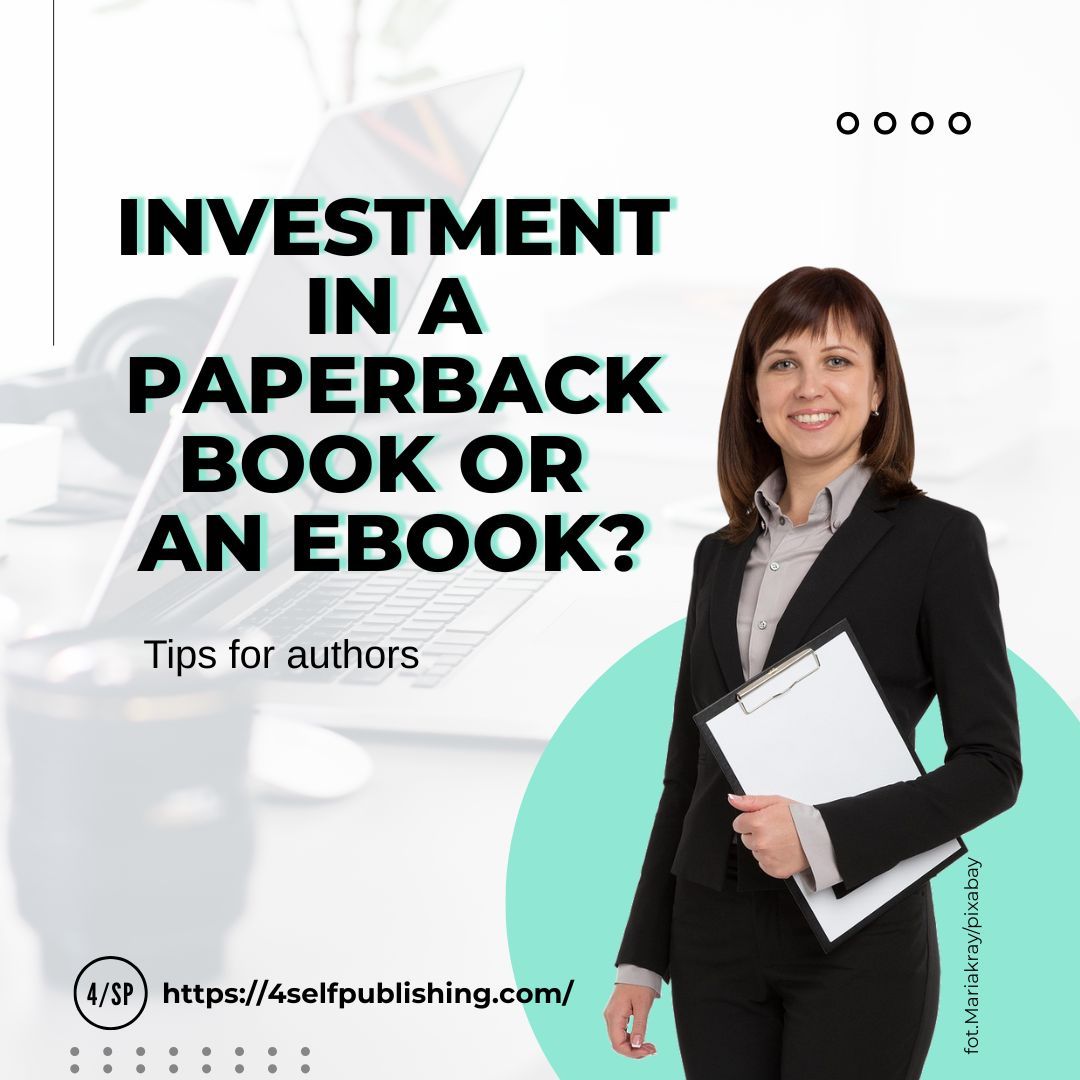
Who are you? How old are you? What kind of person are you? What life experience do you have? Who do you write for? How old are your readers? What do you write for them? Is this your debut, or have you already published books? What is your writing style? These may seem like just a few simple questions, but they hold more meaning than you might think. Why? You’ll find the answer in this article.
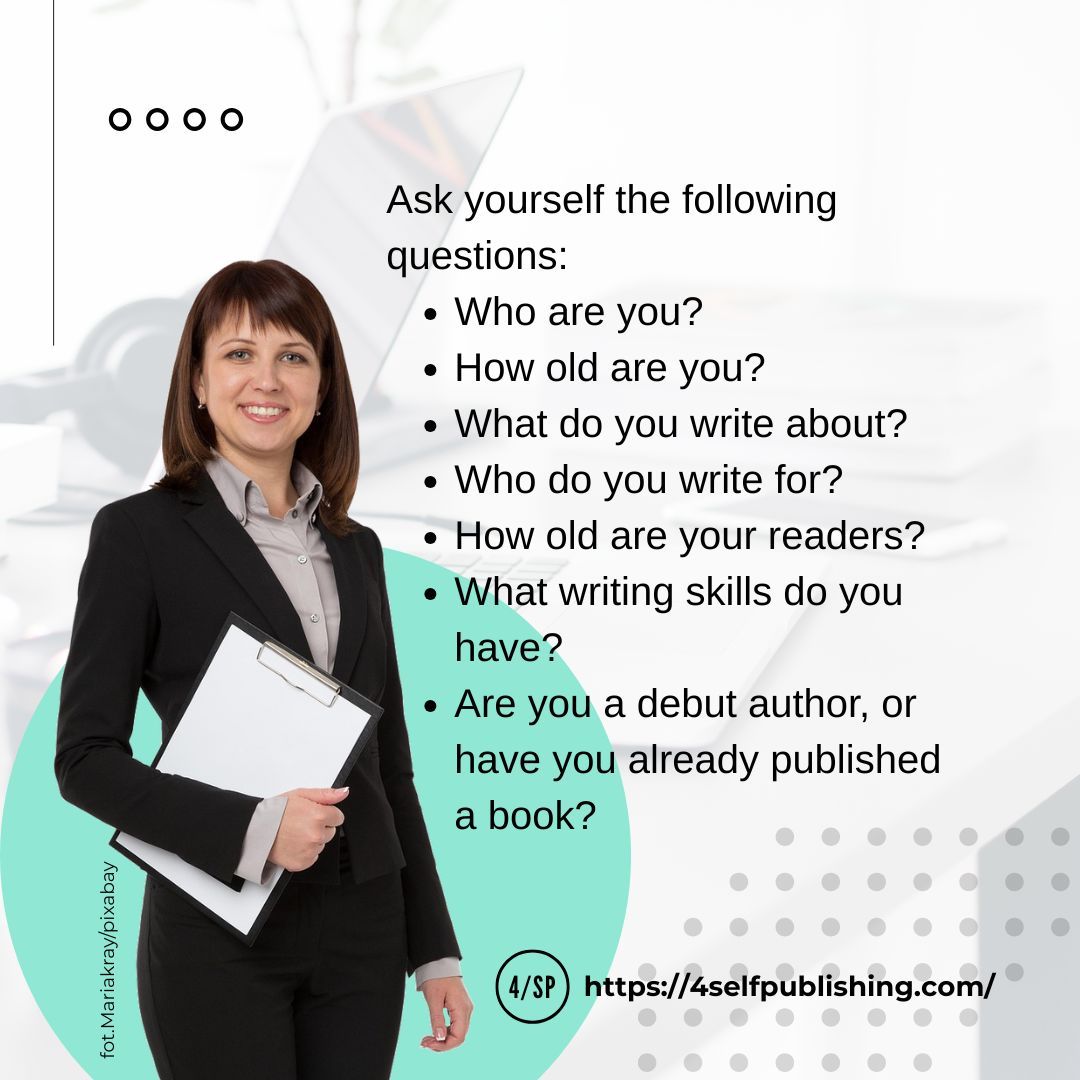
Your preference for books influences your choice. Whether you want to print your book and sell it in stores, post offices, and similar places, or if you prefer to publish it in digital format. Your age also plays a role. People born in the 1960s, 1970s, and 1980s tend to prefer printed books. However, there are also authors among them who prefer eBooks. As the saying goes, "the exception proves the rule." People born in the 1990s and later are more accustomed to digitally published books, which is why they are more likely to choose this option. Each group has its own arguments supporting their choice. There is nothing wrong with that. We are different. Everyone has the right to their own choice, decision, and opinion.
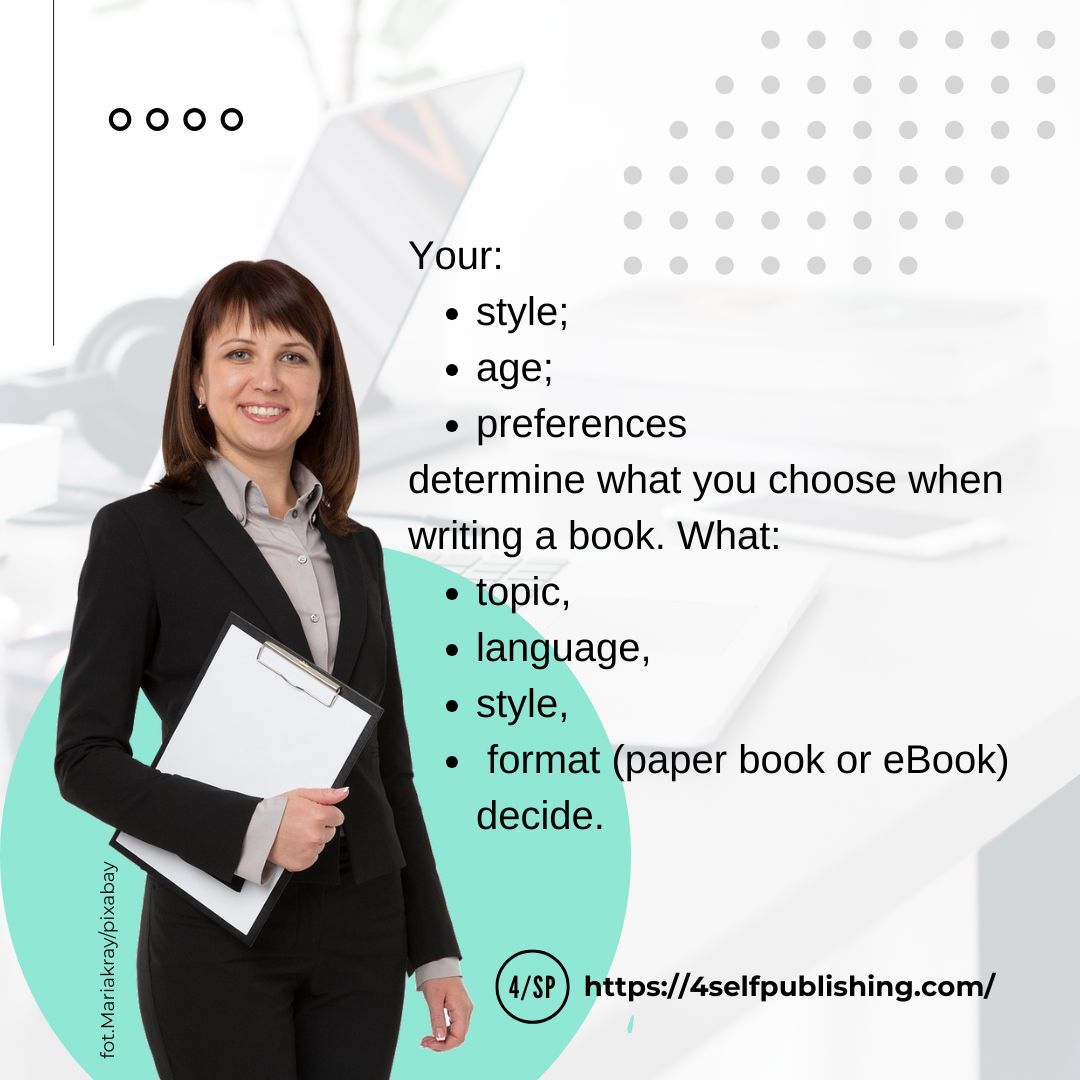
As you can see in this paragraph, you already have an answer to the question of who you are writing for and what your audience prefers. If you were born in the 1970s and write historical novels for young people, you might prefer printed books, but your readers may lean toward eBooks. If you publish children's books or albums, you don’t have much choice—printed books work best for these genres. You can see that the topic, your approach, your experience and age, as well as your readers’ experience and age, all matter.
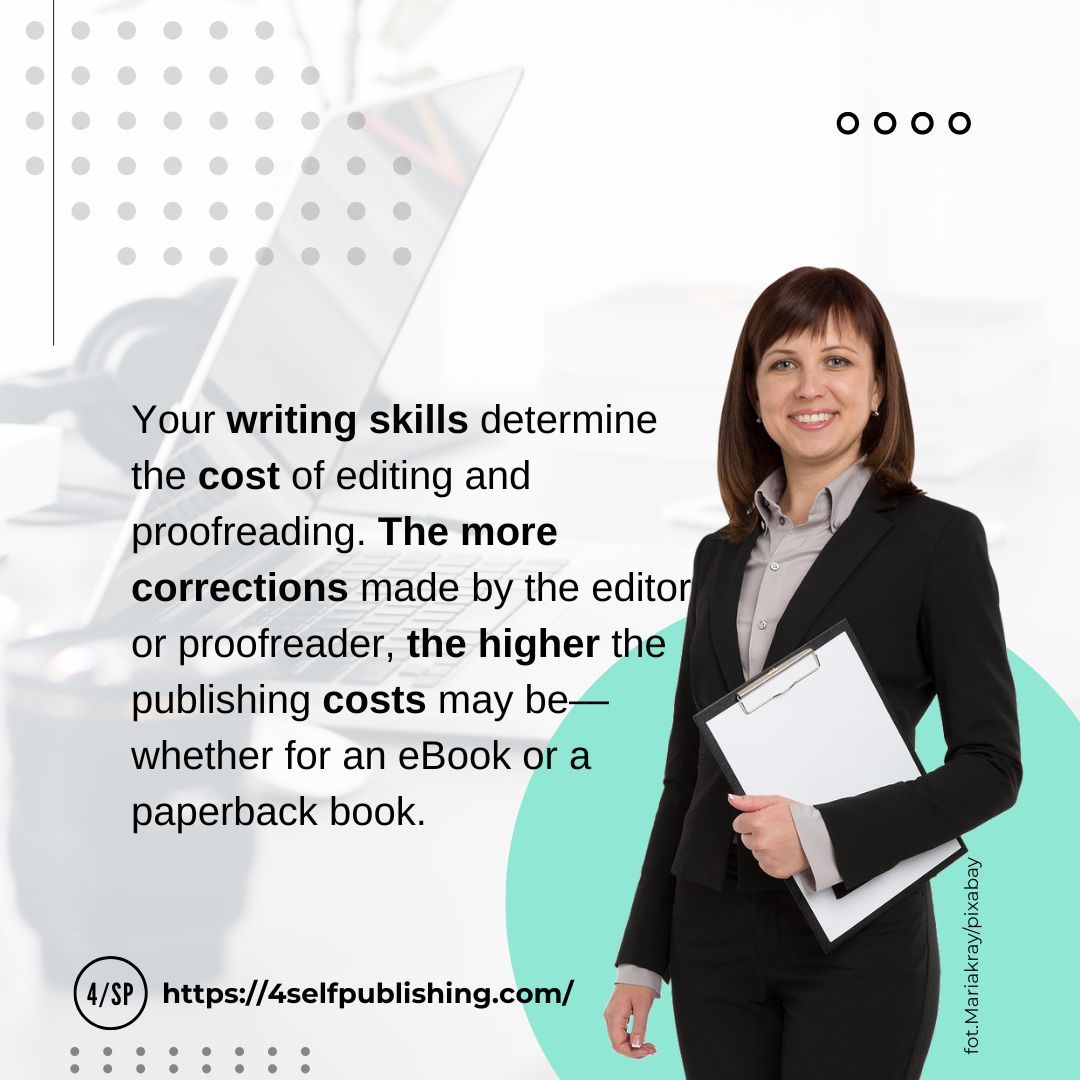
In articles about eBook costs and comparisons between the costs of publishing a printed and digital book, you can find estimates of the lowest and highest costs for editing, proofreading, typesetting, and cover design. Additionally, you will read about printing costs. Your writing style will influence the costs of editing and proofreading. The more corrections an editor or proofreader needs to make, the more you will pay. Remember that the experience of the professional you choose also matters.
If you are a beginner author without loyal readers, and your book is a non-fiction work without images, a historical novel, or science fiction, I recommend starting with an eBook. Why? There are several reasons. The first is financial—when publishing an eBook, you don’t have to worry about printing and paper costs. You only need to cover editing, proofreading, and typesetting expenses. Additionally, you have the flexibility to make corrections and changes while the book is on sale. If you print a book, you can forget about making changes. If you discover an error, the only solution is to include an errata slip. When you publish an eBook, you don’t have to worry about storage or distribution.
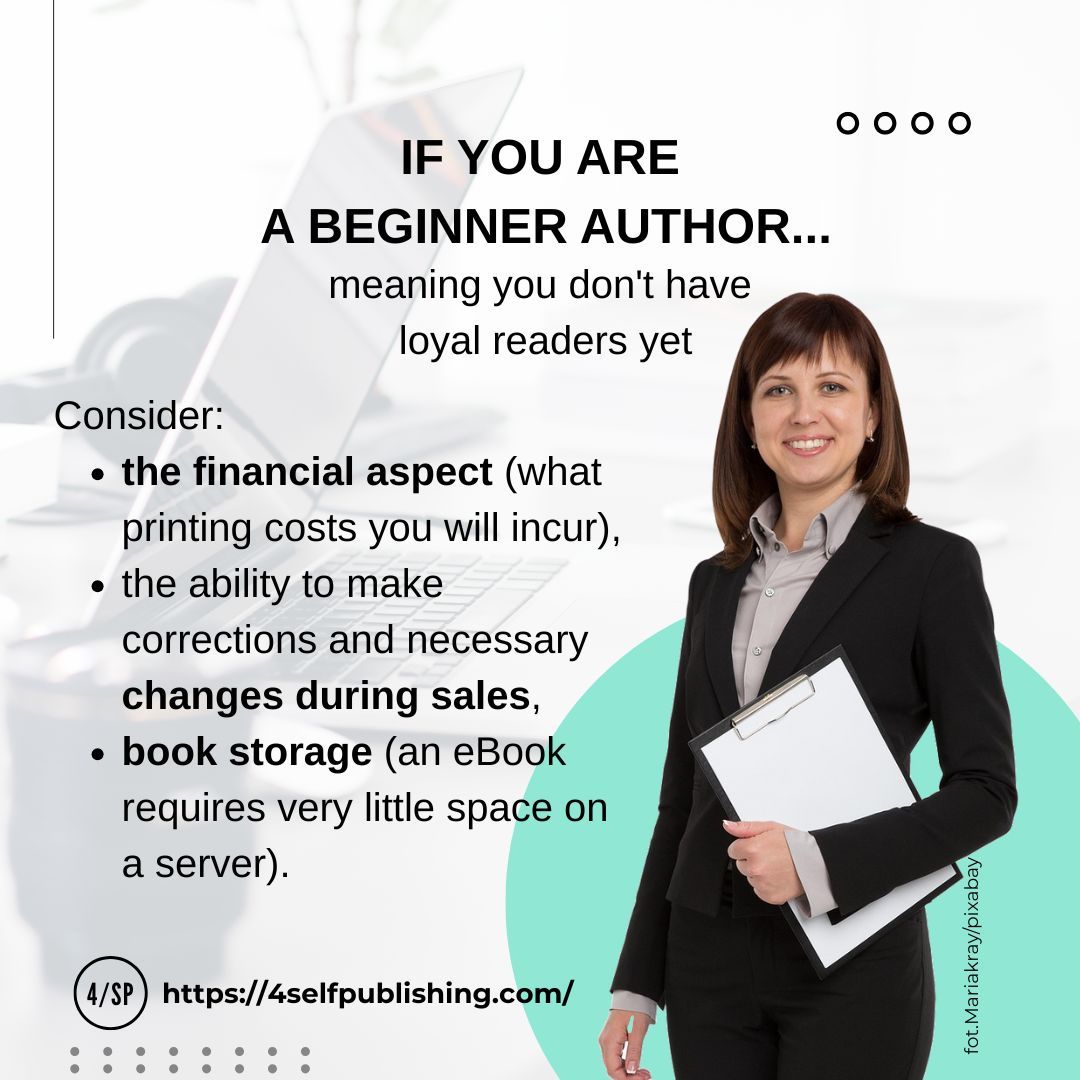
Moreover, publishing an eBook allows you to establish your first connection with readers and learn about their needs and expectations. You can adapt to their feedback and suggestions. Of course, don’t assume that selling an eBook is easier than selling a printed book. That’s a mistake. Both options require the same amount of effort in sales. The only difference is that, in case of failure, an eBook results in lower financial losses, and you won’t be left with unsold printed copies.
If you are new to the book market and don’t have dedicated fans—aside from family and friends—if your book is entertainment-focused or popular science and doesn’t require illustrations, and if you can leave some aspects to the reader’s imagination, I recommend starting with an eBook. Ultimately, the decision is yours. You know your audience, your topic, and how many and what quality of images and graphics you use.
